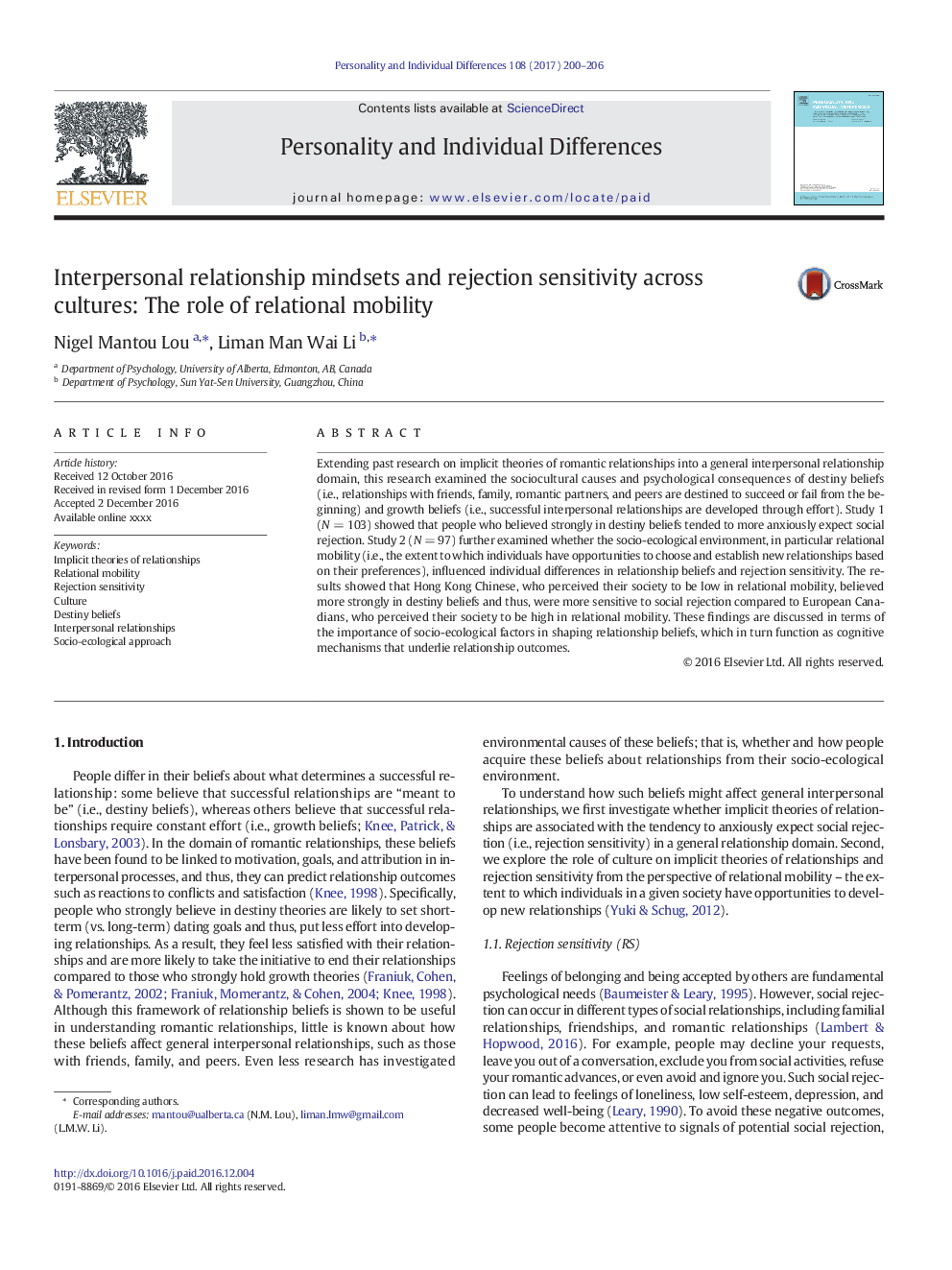ترجمه فارسی عنوان مقاله
اندیشه های روابط بین فردی و حساسیت ردگیری در بین فرهنگ ها: نقش تحرک رابطه ای
عنوان انگلیسی
Interpersonal relationship mindsets and rejection sensitivity across cultures: The role of relational mobility
| کد مقاله | سال انتشار | تعداد صفحات مقاله انگلیسی |
|---|---|---|
| 131910 | 2017 | 7 صفحه PDF |
منبع

Publisher : Elsevier - Science Direct (الزویر - ساینس دایرکت)
Journal : Personality and Individual Differences, Volume 108, 1 April 2017, Pages 200-206
ترجمه کلمات کلیدی
نظریه های نامتعارف روابط، تحرک ارتباطی، حساسیت رد، فرهنگ، باورهای سرنوشت، روابط بین فردی، رویکرد اجتماعی و اکولوژیکی،
کلمات کلیدی انگلیسی
Implicit theories of relationships; Relational mobility; Rejection sensitivity; Culture; Destiny beliefs; Interpersonal relationships; Socio-ecological approach;

